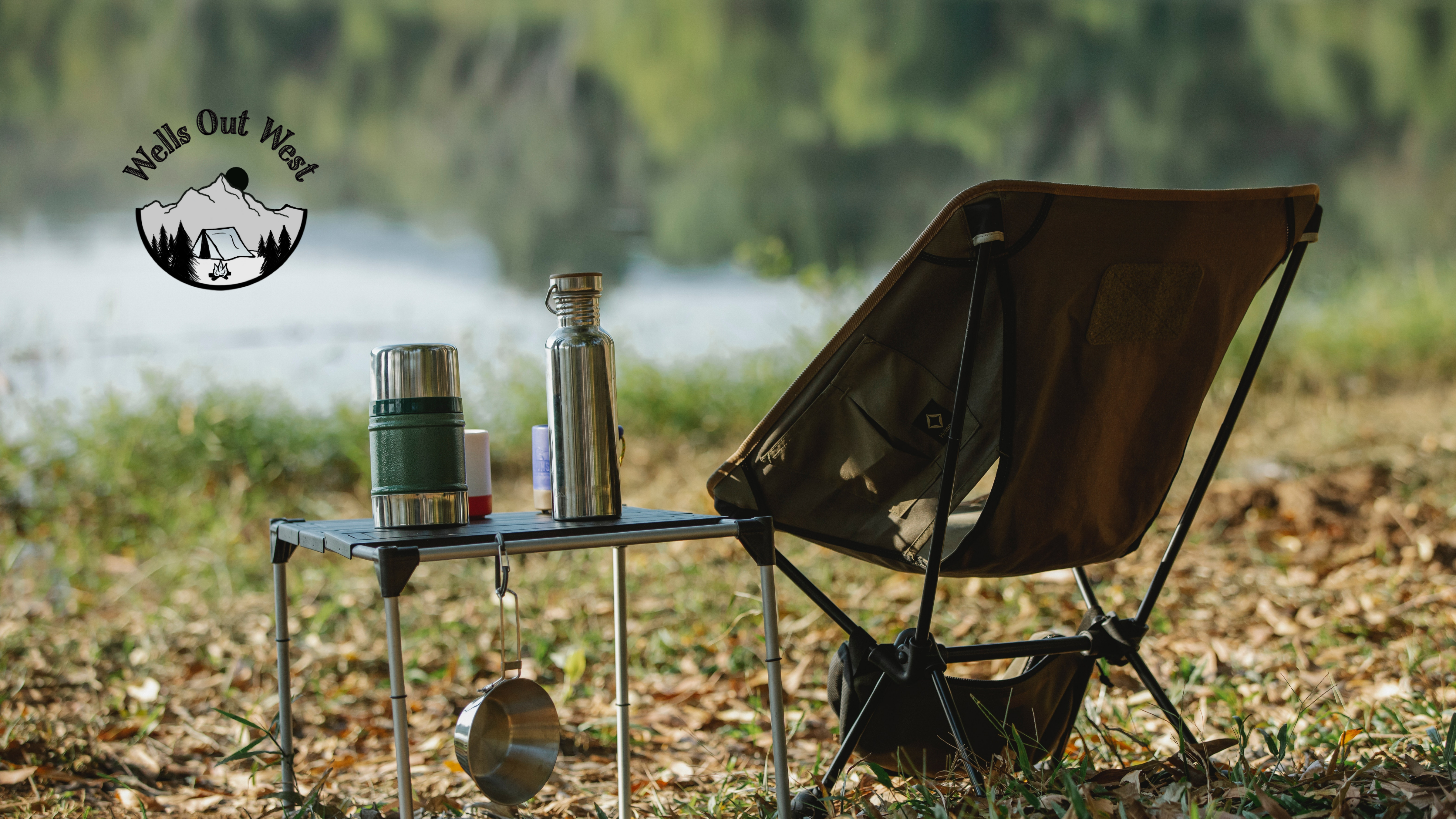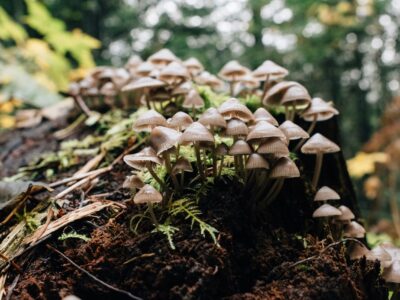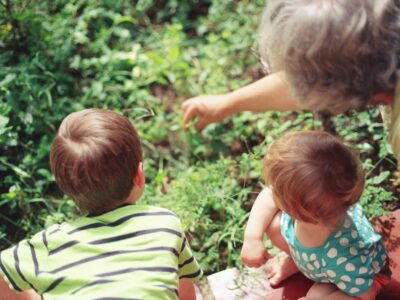When you have a family, road trips are still a great budget-friendly option, even with rising gas prices. I’m taking a trip out west with my two boys and we hit the road tomorrow for WOW: Wells Out West! We’re driving and tent camping for the first time ever (hold on tight for future camping-related hilarities). I’ve been working on my packing list and itinerary for the trip, and one of my goals, besides saving money, is to make our trip as sustainable as I can, without going out and buying a whole bunch of new camping supplies. It’s far more sustainable to use what you’ve got than to buy all brand new, right?
Here are a few ideas I’m going to try to do on this trip to reduce our carbon footprint and save money on the road. Have any other ideas to share?
Bring Reusable Everything
One of the biggest sources of trash from vacations in the past are plastic water bottles and coffee cups. We can cut all of those disposables out by bringing a travel coffee cup and stainless steel water bottles, which can be filled up at the campground before we venture out for the day and refilled at water fountains pretty much everywhere. Staying hydrated is super important to me, and there are a few places and times during our trip that we’ll be on the road a long time; for those days, I plan to buy one of those giant jugs of water and refill our bottles if we can’t get to water fountains. I also use Liquid I.V., a powdered electrolyte supplement of sorts, to help retain more water in the heat of summer.
For meals at the campsite, pack a set of reusable utensils, plates, and bowls. The Internet offers lots of camping-specific stuff, like collapsible cups, bamboo utensils, and what-not, but I have a set of plastic dishes we’ve had forever and plenty of Goodwill purchased silverware. Since we’re doing some food prep while we’re camping, I’ll also need a cutting board and knife.
I’m also packing an electric griddle and making breakfast and dinner at the campsite. More on menu selection and food prep below.
Don’t forget reusable totes and grocery bags, which can hold all sorts of things, including the day’s groceries, snacks for the car, and dirty laundry.
Pack Lightly
Our trip is going to take us over two weeks, but that doesn’t mean we need to bring two weeks’ worth of clothes. Most clothing does not need to be washed after every wear and will last longer if you aren’t washing articles of clothing over and over again (washing and drying is harder on your clothes than regular wear). I can safely plan on the boys and I re-wearing shorts and pants in particular, and most campgrounds we’re staying at have laundry if needed so we can refresh what we absolutely can’t handle wearing one more day.
Be selective about what you put in your car. The lighter the load, the more fuel efficient your vehicle will be!
Use Biodegradable Soaps
You can reduce your impact on the natural environment in the places you’re camping by purchasing and using biodegradable soaps. I’m packing laundry detergent sheets and solid soaps, both of which have no risk of leaking, are lighter, cheaper, and have a smaller carbon footprint. Pack a small wash bin and a dish rag to clean up after meals as well.
Meal Plan and Shop Local
I want to save money on impulse buying when it comes to food, and as tempting as it is to buy snacks and eat out at every stop along the way, it isn’t very environmentally or bank account friendly. If I have some time in advance of the trip, I’ll make some snacks to take in larger, reusable bins to cut down on the waste of gas station snacks (I especially love homemade Chex mix), but frankly, that might be a bit ambitious. If it doesn’t work out, lots of places offer snacks and trail mix in bulk—you can bring reusable containers and fill these up instead of using plastic.
We’re eating simply and shopping locally throughout the trip. My plan is to stop at a grocery store or scout out a farmer’s market in the region before settling in to camp that day and buying just what we need for dinner, breakfast, snacks, and lunch over the next 24 hours. This reduces our need to keep things cool and will help me know what we’re prepping in advance.
Our meal plan is focused on simplicity as well: pancakes and fruit or eggs and bacon at breakfast, sandwiches for lunches with some veggies and chips or fruit again, and simple, over-the-campfire dinners like hot dogs and grilled cheese (using our electric griddle or cast iron sandwich makers (anyone else grow up making “hobo pies”?), quesadillas and black beans and salsa, and so on. So we’ll also need some roasting forks.
We plan on doing a lot of hiking during the day. Instead of using plastic bags, we’ll wrap sandwiches in aluminum foil, which is far more recyclable. Plus there’s often places in parks to recycle this material specifically.
Camping? Don’t Forget These Items
I feel like I go to bed and wake up thinking about what I need to pack for this camping trip. Here are a few other necessities I am worried I’m going to forget:
- The tent. That would be a real bummer.
- Sleeping bags
- Sleeping mats or air mattress, which will likely turn into a sleeping mat anyway because do those things ever stay inflated? No.
- One cooler to keep butter, cheese, eggs, bacon, and hot dogs cool and safe before consuming
- Small fan (even though we’re roughing it, we’re still civilized wimps and require air circulation)
- Phone chargers. Who do you think we are, Sasquatches?
- An extension cord and power strip for all the phone chargers, electric griddle, fan, and optimistic air mattress inflating
- Toothbrush and toothpaste. If you don’t already own a toothbrush and you want to take sustainability to a whole new level, order a bamboo toothbrush and solid toothpaste (yes, it’s a real thing).
- Shampoo, body soap, natural deodorant (I know some people don’t like it, but I LOVE it – either Tom’s or Smarty Pits are great IMHO), and a hairbrush.
- Medications, first aid kit, bug spray, aloe vera gel, sunblock. If you’ll be near water, choose reef-safe sunblock to help the local wildlife survive (sunblock has been shown to bleach and kill coral in reefs).
Also, if you forget something, don’t freak out. This is America, people. There are convenience stores on almost every corner. Just choose wisely, and use what you purchase until it’s gone.
Are you headed out of town for a road trip this summer? Where are you going, and what are you doing? Did we miss something you think is an absolute must-have for your trip? Tell us in the comments on Instagram!





 Copyright
2024
Root and Vine
Copyright
2024
Root and Vine